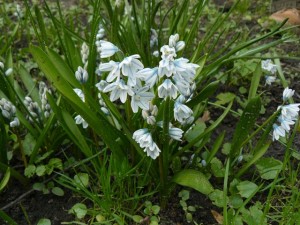Scilla Martima, also known as Drimia maritima (syn. Urginea maritima) is a species of flowering plant in the family Asparagaceae, subfamily Scilloideae (formerly the family Hyacinthaceae). This species is known by several common names, including squill, sea squill, sea onion, and maritime squill. It may also be called red squill, particularly a form which produces red-tinged flowers instead of white. It is native to southern Europe, western Asia, and northern Africa.
Contents
Uses
The plant has been used as a poison and as a medicinal remedy. The main active compounds are cardiac glycosides, including unique bufadienolides such as glucoscillarene A, proscillaridine A, scillarene A, scilliglaucoside and scilliphaeoside. The plant can have a cardiac glycoside content of up to 3%. Scilliroside, the most important of the toxic compounds, is present in all parts of the plant.
Benefits
This species has been used as a medicinal plant since ancient times. It is noted in the Ebers Papyrus of the 16th century BC, one of the oldest medical texts of ancient Egypt. Pythagoras wrote about it in the 6th century BC. Hippocrates used it to treat jaundice, convulsions, and asthma. Theophrastus was also familiar with it. Its primary medicinal use was as a treatment for edema, then called dropsy, because of the diuretic properties of the cardiac glycosides. A solution of sea squill and vinegar was a common remedy for centuries. The plant is also used as a laxative and an expectorant
Cautions
Please talk to your doctor!
Interactions
Please read the instructions and talk to your health practitioner!
Other names
Urginea maritima
References
Source: Wikipedia, https://en.wikipedia.org/wiki/Drimia_maritima#Uses

